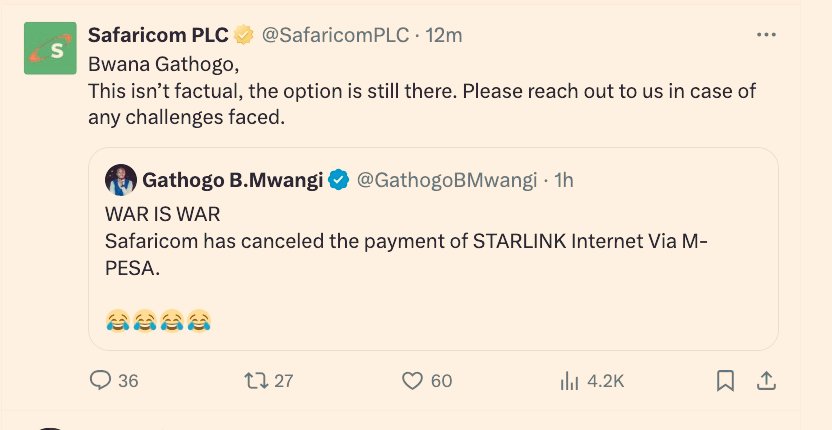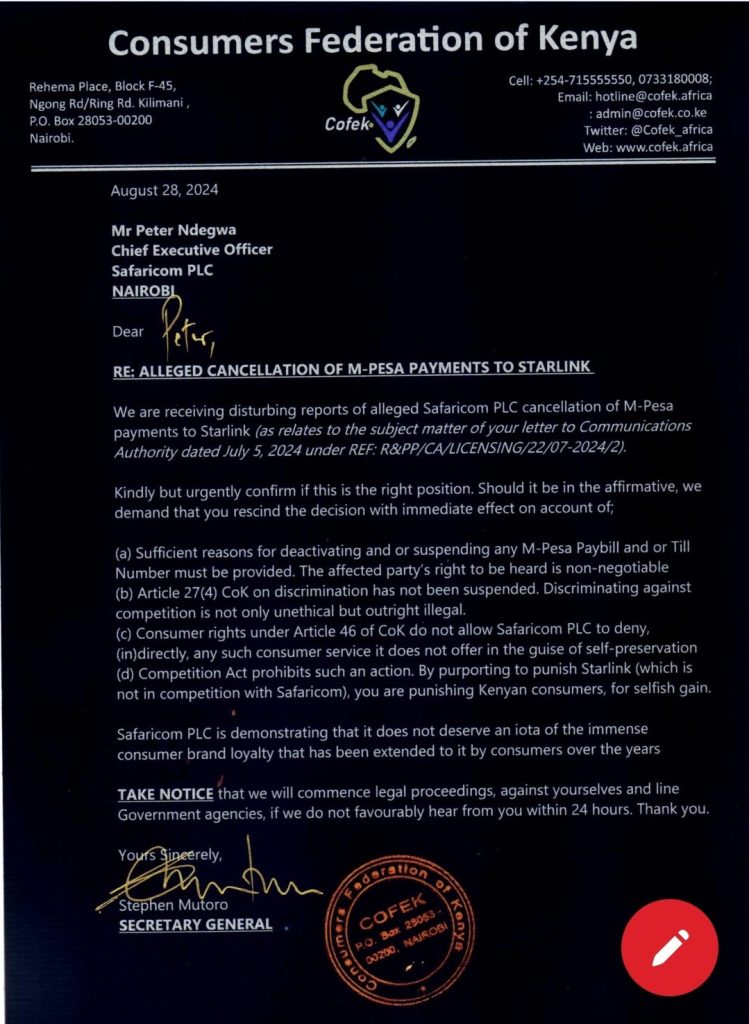
Kenya’s leading telecommunications provider Safaricom has dismissed recent social media claims that it has blocked payments for Starlink internet services via M-Pesa.
In response to a tweet from a user named Gathogo B Mwangi, who alleged that Safaricom had removed the payment option, the company clarified that this was not true. Safaricom’s official account reassured users, stating, “Bwana Gathogo, this isn’t factual; the option is still available. Please reach out to us in case of any challenges faced.”

Starlink’s Market Presence in Kenya and Increasing Competition in the Telecom Sector
Starlink, a satellite internet service powered by SpaceX, entered the Kenyan market in July 2023. The service has gained popularity, particularly in remote areas where traditional internet service providers (ISPs) struggle to reach. Utilizing a network of low Earth orbit satellites, Starlink offers high-speed internet with low latency, making it a viable option for rural and underserved regions.
Since its launch, Starlink has become a significant competitor to local ISPs, including Safaricom. The competition intensified following Starlink’s decision to reduce its hardware installation fees drastically, from KSh 89,000 in 2023 to about KSh 30,000 in August 2024. The company also introduced a rental option for its kit, priced at Sh1,950 per month or Sh45,500 for purchase. This aggressive pricing strategy has made Starlink more accessible to a broader range of customers.
Safaricom’s Call for Regulation of Satellite Internet Providers
Safaricom has expressed concerns over the unregulated operation of satellite internet providers like Starlink. In a memo sent to the Communications Authority of Kenya (CA) on July 15, 2024, Safaricom suggested that these providers should only be allowed to operate in Kenya if they partner with existing local licensees. The telecom giant argued that allowing satellite ISPs to function independently could pose regulatory challenges and undermine the investments made by local companies in infrastructure and spectrum licenses.
Safaricom’s memo emphasized that satellite providers should not be granted licenses directly or operate without a local physical presence. The company believes that without stringent regulations, it would be challenging for the government to hold these providers accountable, particularly concerning compliance issues.







